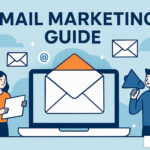What is Content Marketing and Why Should Beginners Care?
Content marketing for beginners is a strategic approach focused on creating and distributing valuable, relevant content to attract a defined audience and drive profitable customer action.
If you’re just starting with content marketing, here’s what you need to know:
| Content Marketing Basics | What It Means |
|---|---|
| Definition | Creating valuable content to attract and convert prospects |
| Goal | Build trust and relationships before selling |
| Key Formats | Blogs, videos, social posts, emails, podcasts, infographics |
| Core Principle | Provide value first, sell second |
| Benefits | Higher ROI, long-term results, better customer loyalty |
Content marketing offers something people actually want: helpful information that solves their problems. When done right, it delivers exceptional ROI and continues generating traffic, leads, and sales for years after publication. Research shows marketers who prioritize blogging are 13 times more likely to see positive returns.
The beauty of content marketing lies in its compounding effect. While paid ads stop working when you stop paying, quality content continues working for you 24/7, building authority and attracting prospects even while you sleep.

Why This Guide Matters
At TheEntrepreneurs.net, we’ve created this roadmap because we understand how overwhelming content marketing can seem when you’re just starting out. This step-by-step guide provides actionable advice that you can implement immediately, regardless of your budget or team size.
Content Marketing for Beginners: Definitions, Myths & Core Principles
When you’re just starting out, understanding content marketing comes down to three simple pillars: value, relevance, and consistency. Unlike traditional ads that interrupt your audience, content marketing for beginners creates something people actually want to engage with.

| Traditional Advertising | Content Marketing |
|---|---|
| Interrupts audience | Attracts audience |
| Focused on product features | Focused on customer needs |
| Short-term campaigns | Long-term assets |
| Immediate but temporary results | Slow-building but lasting results |
| Primarily paid distribution | Mix of organic and paid distribution |
What Is Content Marketing?
Content marketing is about building relationships before asking for the sale. It’s a strategic approach where you create and share valuable content that attracts a specific audience and encourages them to take profitable actions.
Key Traits Every “Content Marketing for Beginners” Program Needs
Helpfulness should be your north star. Your content needs to genuinely solve problems your audience faces. Research shows that 44% of B2B buyers consume 3-5 pieces of content before considering talking to a vendor.
Consistency builds trust. Whether you’re publishing weekly blog posts or monthly videos, stick to your schedule. Your audience will come to expect and look forward to your content.
Brand Voice matters tremendously. Developing a consistent tone helps your content stand out in a crowded digital world.
Quality Over Quantity wins every time. One thoughtful, well-researched piece will outperform a dozen rushed articles.
Busting Common “Content Marketing for Beginners” Myths
Myth 1: Content marketing delivers overnight success
The reality? Content marketing for beginners is more like planting a garden than setting off fireworks. Sustainable results typically take 3-6 months to appear.
Myth 2: More content is better content
Quality consistently beats quantity. One exceptional piece creates more impact than a dozen mediocre posts.
Myth 3: Content marketing is just blogging
Effective strategies include videos, podcasts, infographics, ebooks, webinars, and social media posts – all working together to reach your audience.
Myth 4: You need to be on every platform
Focus where your audience actually spends time. It’s better to excel on 2-3 channels than to spread yourself thin across many.
Setting Goals, KPIs & Audience Personas
Without clear goals and audience understanding, even brilliant content will miss its mark. Let’s build a foundation for your content strategy that delivers results.
Define Success Early
Before creating content, define what success looks like for your business. Your goals should follow the SMART framework—Specific, Measurable, Achievable, Relevant, and Time-bound—and align with broader business objectives.
Most successful content strategies focus on these common goals:
Increasing Brand Awareness – Track through growing website traffic, expanding social media followers, and increasing brand mentions.
Generating Leads – Watch email sign-ups, content downloads, and form submissions grow as your content builds trust.
Driving Revenue – Monitor how content directly influences sales and improves conversion rates.
Improving Customer Retention – Measure through improvements in customer lifetime value and repeat purchase rates.

Know Your People Deeply
Effective content marketing for beginners happens when your content speaks directly to your audience’s specific needs and pain points. Creating thoughtful buyer personas is essential for content that resonates.
A buyer persona is your ideal customer brought to life on paper—a semi-fictional character based on real market research and customer data. To develop helpful personas:
- Gather demographic information like age, location, income, education, and job titles
- Dig into psychographics: values, goals, challenges, and interests
- Map the customer journey to understand how they find solutions
- Talk directly to your actual customers for the most valuable insights
When starting with content marketing for beginners, create 2-3 well-developed personas rather than trying to speak to everyone. This focused approach lets you create deeply relevant content without spreading yourself too thin.
Want more guidance on effectively promoting your business to your target audience? Our marketing basics guide walks you through proven strategies that work for businesses of any size.
Creating High-Quality Content & Choosing the Right Formats
Now that you understand your audience and goals, it’s time to create content that delivers value. The key is choosing the right formats for your message and audience.

Content Ideation & Keyword Research
The journey to great content begins with meaningful ideas that resonate with your audience. The best content ideas come from understanding what your audience is actively searching for.
Conduct keyword research using tools like Google Keyword Planner, Ubersuggest, or SEMrush to find what your potential customers are searching for. Look for the sweet spot where search volume meets your ability to rank and provide unique value.
Organize content into topic clusters with a “home base” article (pillar content) broadly covering a topic, with related articles linking back to it. This helps search engines understand your site structure while giving readers comprehensive resources.
Customer questions often provide the best content inspiration. Check customer service emails, sales call notes, and forums like Reddit or Quora for real-world questions your audience cares about.
Design & UX Best Practices
Even brilliant content falls flat when poorly presented. Use clear headings, subheadings, and thoughtful formatting to guide readers through your content naturally.
With 69% of content consumption happening on mobile devices according to ComScore research on cross-device content use, mobile-first design is essential. Always preview your content on smartphones before publishing.
Make your content scannable with short paragraphs, bullet points, and highlighted key points to help readers quickly find what they’re looking for.
Need help creating professional-looking content without design skills? Check out our guide to top free tools for content creation.
Mapping Formats to Funnel Stages
Different content formats work better at different stages of the buyer’s journey:

Top of Funnel (TOFU): Blog posts addressing common challenges, educational videos, and infographics. Focus on building awareness and trust with helpful information.
Middle of Funnel (MOFU): In-depth guides, webinars, case studies, and comparison charts. Help prospects evaluate solutions.
Bottom of Funnel (BOFU): Product demos, tutorials, customer testimonials, free trials, and ROI calculators. Address specific concerns about implementation and return on investment.
Repurpose content across formats to maximize your efforts—turn webinars into blog posts, blog posts into social snippets, and snippets into infographics.
Promotion, Distribution & Repurposing Strategies
You’ve created amazing content—now let’s make sure people actually see it! Even the most valuable content needs a thoughtful distribution plan.
Earned & Paid Channels
Think of content distribution like planting a garden—you need to scatter seeds in multiple places for the best harvest:
Owned media channels are completely under your control: your website, blog, email newsletters, social profiles, YouTube channel, and podcasts. These give you direct access to your audience without algorithm changes affecting your reach.
Earned media happens when others help spread your message organically through SEO rankings, social shares, backlinks, or media coverage. Guest blogging on relevant industry sites can expand your reach while building authority.
Paid media strategically amplifies your best content through social ads, native advertising, sponsored content, search engine marketing, and retargeting campaigns.
According to HubSpot, companies that blog consistently receive 97% more links to their website. But don’t put all your eggs in the organic traffic basket—successful content marketers use a mix of channels.
If you’re just starting out, pick 2-3 channels where your audience is most active, master those first, and then expand. Quality always beats quantity when it comes to channel management.
Repurpose Once—Reach Everywhere
Smart content marketers know that creating something once and using it many ways is the secret to efficiency:
- Start with substantial “cornerstone content”—like a comprehensive guide or in-depth webinar
- Extract bite-sized pieces for different platforms: statistics for social graphics, sections for articles, data for infographics
- Adapt each piece for its destination platform while keeping your core message consistent
- Regularly refresh evergreen content with updated statistics and new examples
For example, an ultimate guide to email marketing could transform into a webinar presentation, blog post series, social media graphics, email course, checklist PDF, video walkthrough, and infographic.
This approach helps you maintain a consistent presence across channels without creating entirely new content for each platform—it’s about being strategic with your valuable time and resources.
Measuring ROI & Scaling Your Content Engine
Let’s explore the practical side of measuring what matters and building a sustainable content operation.
Tools That Make Tracking Easy
You don’t need a data science degree to track content performance effectively. Start with these user-friendly tools:
Google Analytics shows you where visitors come from, what they do on your site, and whether they take desired actions. Focus on the “Acquisition” and “Behavior” sections to see which content attracts and engages your audience.
Google Search Console reveals which keywords bring visitors to your content and highlights technical issues that might be holding you back.
Platform-specific analytics provide valuable feedback on how your audience interacts with your content beyond your website. Pay attention to engagement metrics like comments and shares.
Connect these metrics to your business goals. If brand awareness is your focus, track unique visitors and social shares. For engagement, look at time on page and comment counts. For lead generation, monitor form submissions and downloads. For sales impact, track attributed revenue and conversion rates.
Here’s an eye-opening stat: 63% of businesses operate without a documented content strategy, making ROI measurement nearly impossible. Document your goals and KPIs from day one, even if they evolve over time.
Building Processes & Teams for Growth
The difference between occasional content creation and a true content marketing for beginners strategy often comes down to having good systems in place.
A content calendar helps you plan ahead. Even for a team of one, mapping out topics, formats, and publication dates for the next 1-3 months prevents the “what should I create next?” paralysis.
Establish clear workflows for how content moves from idea to published piece. Templates and style guides save tremendous time while ensuring consistent quality.
For small teams or solopreneurs, work smarter by:
– Batching similar tasks (write all social posts for the week in one sitting)
– Using beginner-friendly tools like Canva for graphics and Grammarly for editing
– Leveraging AI assistants for research and first drafts (though always add your human touch)
– Bringing in freelancers for specialized skills when needed
According to research from the Nielsen Norman Group, consistency in design and content delivery significantly increases audience trust—another reason why good systems matter beyond just efficiency.
Frequently Asked Questions about Content Marketing for Beginners
How long before I see results?
Content marketing for beginners is a marathon, not a sprint. While you might see some encouraging engagement right away, meaningful results typically take 3-6 months of consistent effort. SEO benefits usually emerge after 6-12 months of regular publishing.
The beautiful part that makes the wait worthwhile: unlike paid ads that stop working when you stop paying, content marketing builds momentum over time. Many businesses still get traffic, leads, and sales from articles published years ago. Your content becomes a business asset that works for you 24/7.
How much should a beginner budget?
When it comes to budgeting, it depends on your specific goals, industry, and resources. Industry research shows about 27% of companies invest less than $1,000 monthly on content marketing, while 19% spend between $1,000-$3,000, and 20% allocate $3,000-$5,000.
For those just starting with content marketing for beginners, start with what you can consistently sustain. It’s better to publish one thoughtful piece monthly than to burn out trying to post daily for two weeks before giving up. As you see returns, gradually increase your investment.
Your biggest investment might actually be time rather than money, especially if you’re creating content yourself. Quality always beats quantity when you’re just getting started.
Which content type converts best?
The honest answer is that it varies by industry, audience, and where people are in their buying journey. However, research gives us some helpful insights:
- Email marketing delivers an average ROI of $36 for every dollar spent
- Webinars achieve 20-40% average conversion rates with about 40% of attendees becoming qualified leads
- For B2B companies, case studies are particularly effective, with 78% of buyers using them when researching purchases
- 81% of businesses report increased sales after adding video to their strategy
The smartest approach? Test different formats with your specific audience and measure which performs best for your particular goals.
Conclusion
Content marketing isn’t just another marketing tactic—it’s a fundamental shift in how you connect with your audience. When you provide genuine value before asking for the sale, you build relationships that fuel sustainable growth.
For those exploring content marketing for beginners, success boils down to a handful of principles:
-
Understand your audience deeply. What problems are they trying to solve? When your content addresses specific needs, it resonates in ways generic content never will.
-
Quality trumps quantity every time. One remarkable piece that makes readers think “this was exactly what I needed” will outperform dozens of mediocre posts.
-
Consistency builds trust. Whether you publish weekly or monthly doesn’t matter as much as sticking to your schedule. The same goes for your brand voice.
-
Be strategic about distribution. Focus your energy on the platforms where your audience actually spends time. A targeted approach on two channels beats a scattered presence on ten.
-
Measure what matters to your specific goals. Track the numbers that connect directly to your business objectives.
-
Build systems that allow you to scale without sacrificing quality. Templates, workflows, and clear processes make growth possible without burning out.
Even seasoned marketers are constantly learning and adapting. The digital landscape evolves quickly, and staying curious is part of the journey.
At TheEntrepreneurs.net, we’re here to guide you with practical advice and proven strategies. For more insights that can help you grow your business, explore our marketing category or reach out with your specific questions.
The most effective content marketing feels nothing like marketing at all—it’s simply valuable information that happens to come from your brand. Start with that mindset, and you’re already miles ahead of most beginners.
What content marketing challenge are you facing right now? Drop us a comment below—we’d love to help!





















